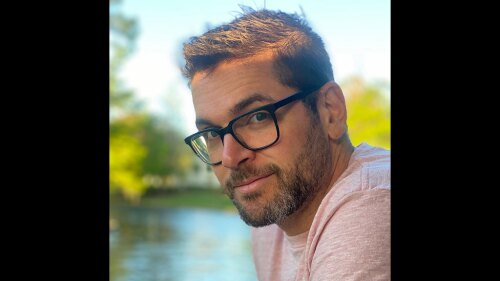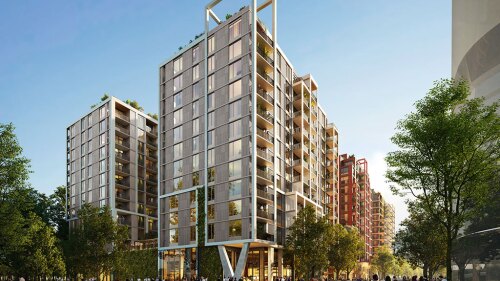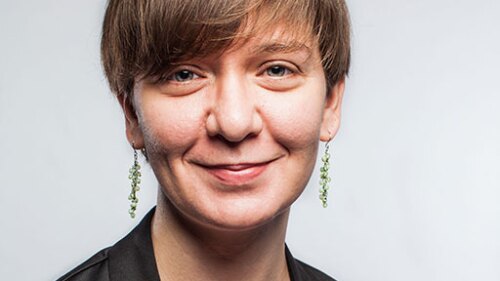Resilience and Sustainability
Drive resilient, sustainable development with ULI’s insights, tools, and leadership shaping climate-ready, low-carbon, equitable built environments.
Since Microsoft established its headquarters in Redmond, Washington, in 1986, the company’s campus has grown from four buildings to more than 100. The East Campus Modernization Project is the latest addition: replacing several older structures with ones designed to meet the demands of the modern hybrid workplace—and embody the company’s commitment to both employee well-being and environmental stewardship.
London is one of many cities rethinking its car-first orientation and embracing a more holistic vision of urban life rooted in social connection. Car-free and car-light streets are most successful when they function as social infrastructure that supports belonging, well-being, and public life. In other words, infrastructure matters, but intentional placemaking determines results.
In October 2025, ULI convened the Water Wise Development Coalition to discuss the latest updates on water and land use policy and their implications for both the real estate industry and the country as a whole. The meeting brought together land use experts, real estate professionals, and public sector decision makers. Guest speakers included Kelly Connolly Kern, director of public affairs at the Alliance for Water Efficiency, and Lindsay Rogers, policy manager for municipal conservation at Western Resource Advocates.
Data centers entail a massive carbon footprint, both physically and operationally, and have often been criticized for their significant energy consumption. The environmental consequences have become even more acute with the rise of AI, which requires enormous computing power and cooling. Cities, designers, and policymakers now face the urgent challenge of reimagining these resource-intensive facilities so that they can meet rising energy demands while mitigating climate pressures, ensuring these buildings enhance their immediate environments rather than compromise them. The Terra Ventures Data Center in San Jose, California, exemplifies this socially responsible approach. Expected to be completed in 2027, the new facility aims to showcase how careful planning can meet both global demand and local responsibility.
Multifamily buildings occupy structures with storied pasts. The rise of remote work and the continued housing shortage have led to a surge in the number of apartments being carved out of former office space—70,700 in 2025 compared to 23,100 in 2022, according to RentCafe. Developers are increasingly turning to structures with former lives—as offices or industrial or commercial buildings—to create multifamily housing that gives residents dwelling spaces that feel rooted in place and connected to the broader narrative of their communities.
The ongoing challenges in decarbonizing skyscrapers, warehouses, apartments, and myriad other types of buildings were a key topic during ULI’s 3rd Real Estate Developer & Utility Convening on September 22—part of Climate Week NYC, the largest climate conference outside of the United Nations’ COP.
ULI’s Global Sustainability Outlook, launched in 2021 by the Randall Lewis Center, has become the organization’s annual barometer on the sustainability topics shaping real estate and land use. Each year, the report distills insights from global industry leaders to identify the top issues most likely to influence strategic decision-making in the year ahead and beyond.
Stephen Pantano has joined ULI Impact Lab as a senior fellow. Most recently, Pantano was the vice president of research and special projects at Rewiring America for three years. He previously served as the chief research officer at the Washington, D.C.-based CLASP (formerly the Collaborative Labeling and Appliance Standards Program), where he established the global non-profit organization as a thought leader in energy efficiency through technological innovation and policy advancement. Additionally, he worked at ICF International, leading the development of Energy Star specifications for various electronic devices to enhance energy efficiency.
In 2013, when the founders of Redbrick LMD looked over a large swath of land in Southeast Washington, D.C., they immediately connected with the breathtaking views of the U.S. Capitol, the Washington Monument, the Anacostia River, and expansive green space. They recognized that this kind of access was rare anywhere in the region, but especially in this often-overlooked corner of the city.
The ULI Randall Lewis Center for Sustainability in Real Estate—ULI’s flagship global center for decarbonization, resilience, and health—is pleased to announce its three newest board members: Jackie Knight, Julie Manning, and Anupam Yog.










